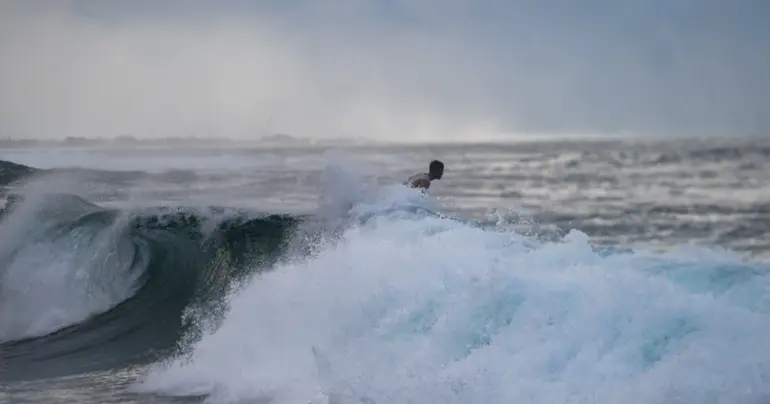'Who has the right to the malu': a researcher asks
 By Sialai Sarafina Sanerivi
•
04 October 2023, 8:00PM
By Sialai Sarafina Sanerivi
•
04 October 2023, 8:00PM
A Samoan PhD candidate, researcher and film producer has asked questions on "who has the right to the malu" as debate continues about protecting the sacredness of the traditional Samoan tattoo.
Agapetos Aia-Fa'aleava – whose research focuses on non-Samoan women and Samoan fa'afafine with the malu (the traditional Samoan tattoo culturally reserved for women) – said she accepts that her research topic and focus point is somehow "ambitious, adventurous and treacherous".
In an interview with the Samoa Observer, she acknowledged that she has embarked on a controversial journey through her research topic, and added that her research gives rise to the notion of creating a tatau specifically for the Samoan fa'afafine community.
Mrs. Fa'aleava said that while her position can be considered to be "radical", it is her response to the notion of "modernity itself" of reflecting on the past while living in a natural evolution of change.
Her perspectives are visualised in a documentary titled "One Tatau, Two Worlds (2023)" which has interviews with non-Samoan women and fa'afafine who have received the Samoan malu.
"It is common knowledge that twin sisters Taema and Tilafaiga were responsible for bringing the tatau to Samoa," Mrs. Fa'aleava wrote in her analysis. "The sisters taught men how to tatau our Samoan people.
"With the Samoan tatau as its business model, the Suluape clan have been progressive at taking the legacies of Taema and Tilafaiga beyond Samoa’s soils. Suluape clan have capitalised on the need for Samoans who live abroad and are looking for a connection to their homeland."
She then shared about the journey of the Samoan fa'afafine who received and today have the malu.
"Being the vessel of two spirits (man–woman) and walking between multi-worlds: man, woman, and Samoan+ (identity as another race other than Samoan) there is a need for Samoan fa’afafine to receive a malu.
"During my research, I have come across stories of Samoan women with the pe’a. A few Samoan fa’afafine have been private with their malu journey, whereas Talalima Mobley (Samoan, Black American fa’afafine) has bravely and openly spoken about her malu journey.
"Her story is in my documentary and my teaser has erupted conversations within our Moana communities. The power of digital media has drummed up much-needed discussions of who has the right to the malu."
On the other hand, Mrs. Fa'aleava also spoke about the challenge of the rise in digital technology particularly media and how Samoans use it to preserve this important aspect of their culture.
"Digital media is the superhighway of information, allowing non-Pasifika tattooists to copy and paste tatau designs for their own portfolios.
"Amiee Houringan (QUT PhD candidate and researcher of digital inclusion) says that 'the problem is that digital spaces can quickly lose context and so the right for Samoans to have self-governance or control of these practices can quickly [be] taken away by non-Pasifika peoples.
"We are now seeing renditions and remixes of Samoan Tatau online, with ‘inspired by Samoan Tatau’ captions. Non-traditional Samoan tatau wearers are sharing their thoughts about the Samoan tatau without experiencing the pain of the ‘au.
"Tatau wearers are being ridiculed for showing their traditional Samoan tatau in public places especially women with the malu. Tatau designs and information are handed to the world on a silver digital platter. How can Samoan Tufuga Ta Tatau compete with this digital advancement?"
Mrs. Fa'aleava, who also wears the malu, then shared her thoughts about the possibility of having a tatau specifically for the Samoan fa'afafine community.
"Our Samoan tatau is a powerful form of personal expression with deep cultural roots. Suluape clan has been progressive in ensuring the tatau legacies live on through their workshops, exhibitions, and films on various digital platforms.
"If the Suluape clan are now taking a staunch stance against fa’afafine with the malu and women with the male pe’a, my question is who are the ones who freely and willingly gave our Samoan tatau to the world? Samoa’s Tufuga Ta Tatau should capitalise on this new wave and continue to colonise multi-cultures with our Samoan tatau: men, women and fa’afafine.
"The absurdity of this idea creates an unsettled view from Samoans, but I say 'why not? I will further take a radical stance and say 'we have non-Samoan Tufuga Ta Tatau (men and women), we have non-Samoans with the tatau, then surely we can create a tatau specifically for our Samoan fa’afafine community”
A teaser of the documentary was shared online last month has already created a lot of debate and opened up discussions online
 By Sialai Sarafina Sanerivi
•
04 October 2023, 8:00PM
By Sialai Sarafina Sanerivi
•
04 October 2023, 8:00PM











